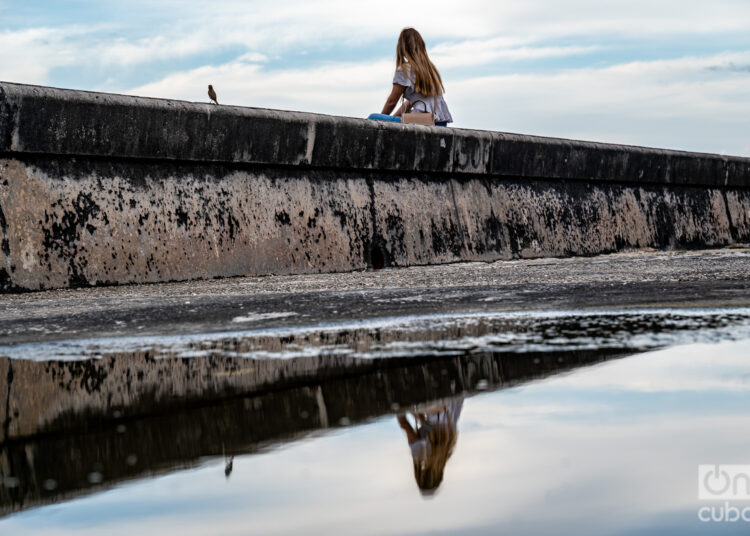A month after the digital publication of its bill and after an avalanche of opinions, questions, analyses and official explanations, the new Law on Immigration was approved this Friday by the Cuban parliament.
After a presentation and previous debate during the work in commissions, the island’s deputies gave the long-awaited approval to the legislation, which has among its novelties the elimination of the 24 months of stay abroad to be considered an “emigrant,” a category that will remain only for those who already were before the law was approved and that can be changed at their will.
Another novel aspect — and generating doubts and controversies — is the status of effective residents on the island, intended for those who spend more than half of a calendar year in the country or, with a shorter stay, have “evidence” of having “roots” in the country.
After popular questions and parliamentary exchanges on the matter, this should be reflected more clearly in the finally approved version and its regulations, as explained days ago by José Luis Toledo Santander, president of the Constitutional and Legal Affairs Commission of the National Assembly.
Among the manifestations of “having roots in the country,” not required of residents abroad and advanced prior to the presentation of the regulation in parliament, the deputy mentioned maintaining a domicile and a family in Cuba, complying with tax obligations, and having a link to any of the country’s organizations.
Likewise, according to Toledo Santander, in the reformulation of the bill now supported by legislators it was established “that once effective residence has been acquired if the person maintains the conditions under which it was granted, they don’t have to make any more changes.”
Law on Immigration: “Popular participation will have a direct impact on the final version”
Properties, investments, entries and exits
After the bill on immigration was presented, one of the aspects that generated the most concern was that of the properties and inheritances of people who no longer reside in Cuba. After several official explanations, these doubts seem to have been resolved with the confirmation of these rights by the authorities.
In this sense, according to Toledo Santander, “it was decided to add an article where it is evident that Cuban citizens residing abroad, in correspondence with article 58 of the Constitution of the Republic, have the right to use, enjoy and freely dispose of the assets of their property established in the national territory, in accordance with what the law expresses.”
Previously, First Colonel Mario Méndez Mayedo, head of the Department of Identification, Immigration and Aliens, of the Ministry of the Interior (MININT), had already affirmed it “categorically.”
“No one loses their home because they live abroad, no one loses their car, no one loses property. The law does not say that and we confirm that no one loses it. We are definite about that,” he had said at a press conference about the new legislation.
Another issue that has focused media attention is the possibility of granting Cuban residency to investors on the island, for whom a new immigration category is created in line with the government’s intention to offer “immigration solutions” in the context of the “new economic model.”
The fact of giving the green light to the authorities to prohibit the entry to or exit from the country to certain people for “reasons of defense and national security,” “hostile actions” against the State, or ― in the specific case of the departures — for “lacking the established authorization” as qualified workers of high value for the country, in order to “guarantee the security and protection of official information” and, even, for “public interest.”
Other aspects
Along with those already mentioned, the law establishes the migratory categories and classifications of foreigners, while explaining that those born on the island who relinquish Cuban citizenship, once said renunciation is approved, will be “considered foreigners and consequently they are subject to the provisions of this Law, referring to aliens and its respective regulations.”
Those who do so “cannot identify themselves in Cuba as Cuban citizens and for entry to and exit from the country they are subject to the presentation of the corresponding foreign passport, a visa requirement, and the corresponding travel documents.”
The regulation also establishes the immigration rights of Cuban citizens and foreigners, and regulates the procedures, the passport, and the conditions for entry to and exit from the national territory.
In addition, it includes a title dedicated to human trafficking and migrant smuggling and another on immigration measures and sanctions.
The new Law on Immigration is part of the “legislative update” underway in Cuba after the entry into force of the current Magna Carta in 2019 and its approval takes place amid the migratory wave that the island has suffered in recent years, spurred due to the prolonged and severe economic crisis.
The authorities have defended it as part of the adaptation of the Cuban legal system to the current scenario of the country and in tune with the intention of “regulating the Cuban immigration process, under a systemic condition of development” and “achieving regular, orderly and safe migration, following the Constitution.”
According to what was previously explained, its entry into force must take place 180 days after its parliamentary officialization, as part of the legislative package presented in the current sessions of the National Assembly and which also includes the parallel laws on Citizenship and Immigration, and others such as Transparency and Access to Public Information, and Administrative Procedure.










